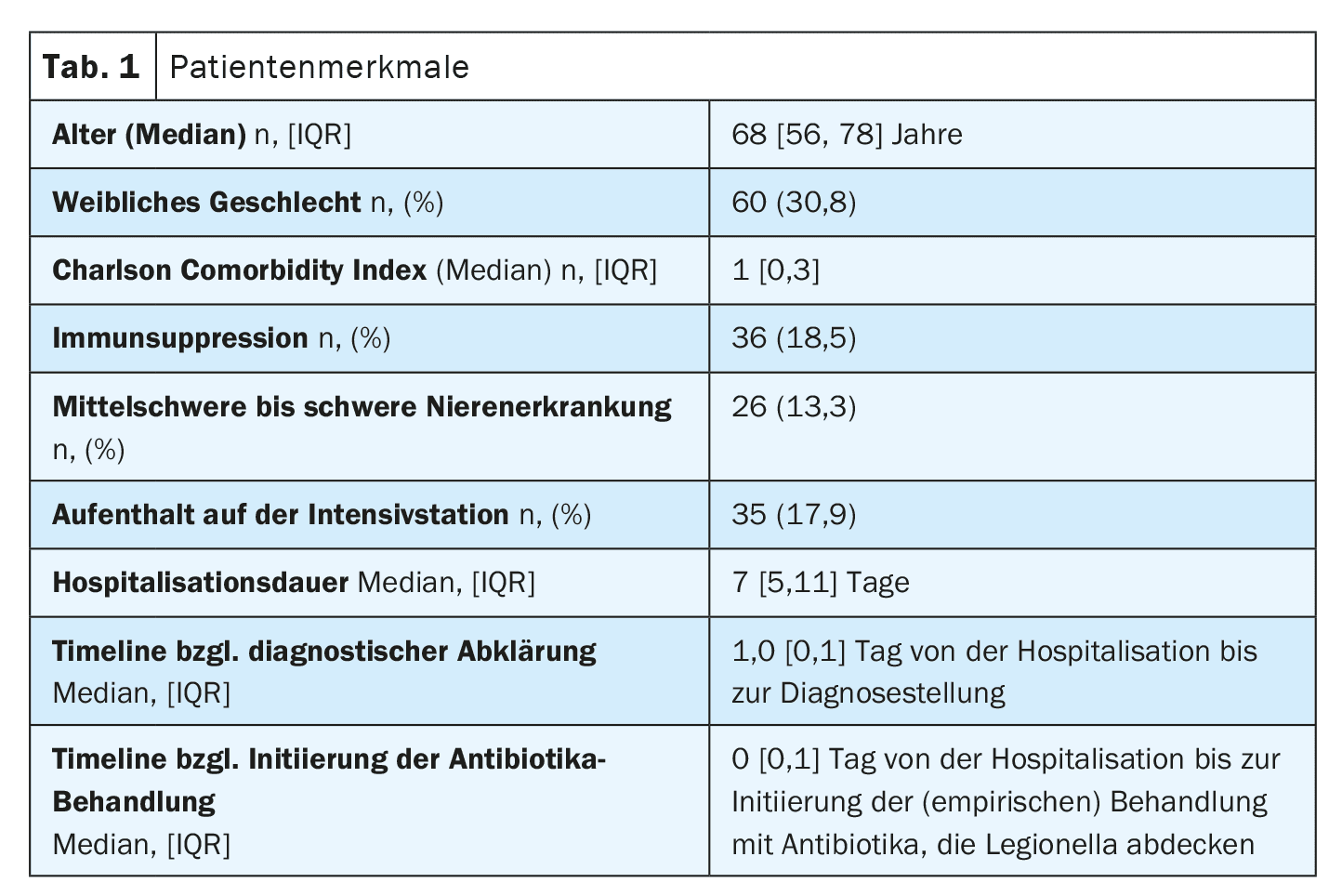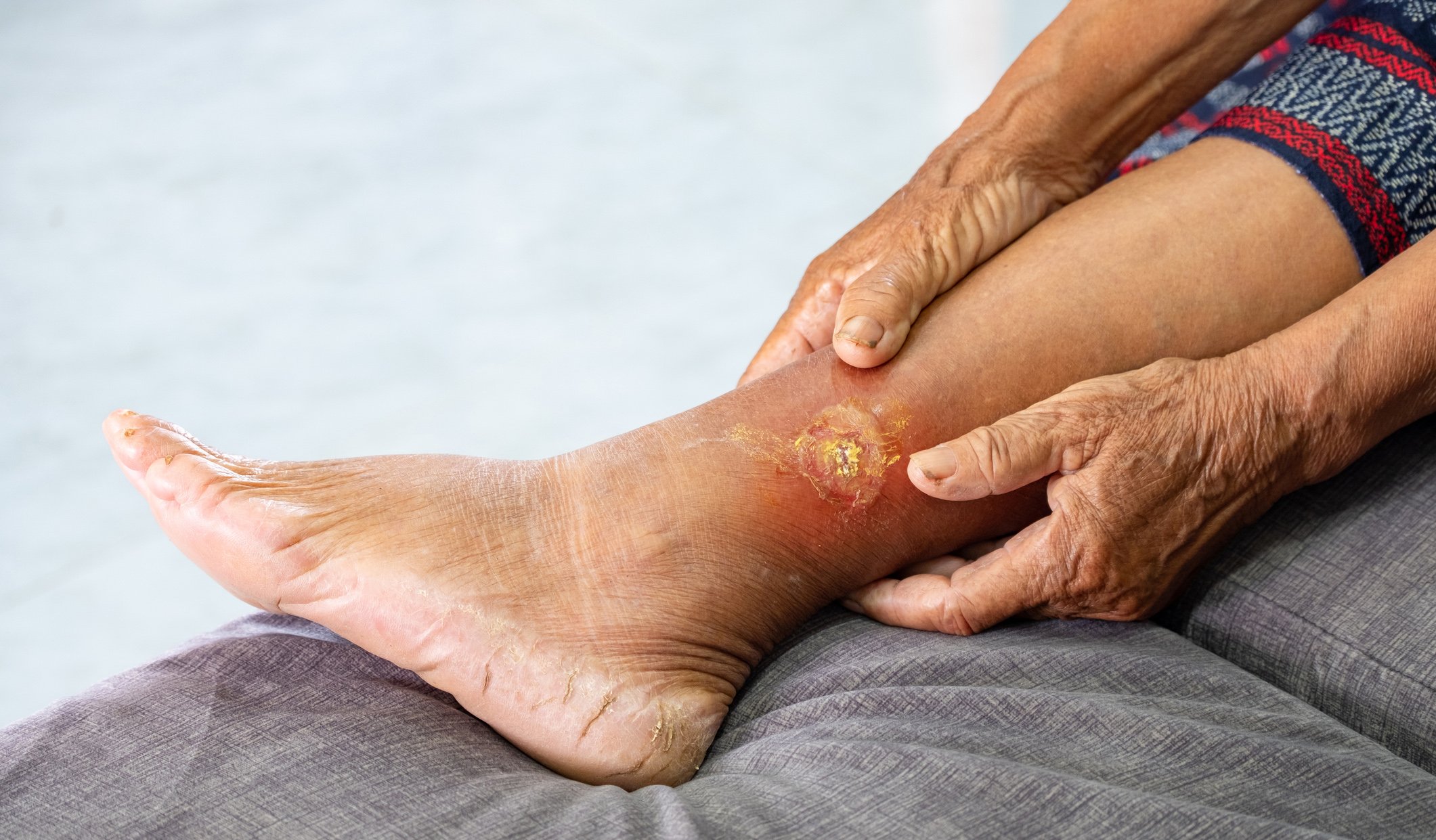The number of Legionnaires’ disease cases has been rising in Switzerland since the turn of the millennium. Prompt initiation of targeted antibiotic treatment can reduce mortality and antibiotic-related side effects and contributes to the goals of antimicrobial stewardship. The Swiss LEGIO study evaluated, among other things, the choice of antibiotic and the duration of treatment in patients with confirmed Legionella infection.
After a decline in the number of legionellosis cases in 2020, which is presumably due to the measures against Covid-19, the upward trend has continued since then [1]. In 2022, the highest ever number of confirmed cases of legionnaires’ disease was reached in Switzerland, with a reporting rate of 6.9 cases per 100,000 inhabitants. As the statistics show, older people of the male sex are particularly frequently affected. The highest reporting rate was among people in the over 80 age group. Most cases of legionellosis occur in the summer months [2,3]. Legionella bacteria prefer to multiply in water pipes, taps, whirlpools or ventilation systems and cooling towers at temperatures between 25 and 45 degrees Celsius. Infection occurs primarily through the inhalation of aerosols containing legionella. There is hardly any danger from swallowing contaminated water, as the stomach acid in the stomach kills the legionella.
National case-control study with various questions
At this year’s Joint Annual Meeting of the Swiss Society for Infectious Diseases (SSI) with the Swiss Society for Microbiology (SSM) and the Swiss Society for Hospital Hygiene (SSHH), Bigler et al. presented analyses of data sets from 20 specialist practices or inpatient departments with patients who took part in the Swiss LEGIO study between July 2022 and March 2024 [4]. The focus was on the evaluation of antibiotic use 24 hours after the diagnosis of Legionella infection was confirmed. This was done with reference to the Swiss national guideline for community-acquired pneumonia [4,6]. In cases of confirmed Legionella infection, the Swiss guideline recommends discontinuing beta-lactams and switching to targeted monotherapy with quinolones, macrolides or tetracyclines, with a suggested treatment duration of 7-10 days (or 14-21 days in immunocompromised patients).
The majority of cases were treated with antibiotics in accordance with the guidelines
195 legionellosis patients were included in the analysis [4]. 88.2% of patients received (empirical) treatment with antibiotics effective against Legionella within 24 h of a confirmed diagnosis. The patient characteristics are shown in Table 1 [4]. A fully guideline-compliant antibiotic prescription was given to 79.6% of legionellosis patients. The following deviations from the procedure suggested in the guideline were found in a minority:
- In 11.8% of patients (n=23) who had no co-infections, treatment with beta-lactams was continued after a confirmed diagnosis.
- Suboptimal dosing of levofloxacin (no loading dose) was used in 10 patients (5.1%) with impaired renal function.
- In 4 patients (2.1%), antibiotics were prescribed that did not cover Legionella.
In 35.4% of legionellosis patients, the duration of treatment with quinolones, macrolides or tetracyclines proved to be a median of 4 days longer than suggested by the guideline (IQR=3.4). A switch from macrolides to quinolones was observed for 37.5% of patients during the course of treatment. This had no effect on the adequate duration of treatment.
In summary, it can be stated that the prescription of antibiotics was largely in line with the guidelines, which attests to a high awareness of Legionnaires’ disease on the one hand and the guideline recommendations on the other [4].
Congress: Joint Annual Meeting SSI/SSHH/SSTTM
Literature:
- FOPH Bulletin 39 of September 25, 2023, www.bag.admin.ch,(last accessed 11.09.2024).
- “Legionnaires’ disease in Switzerland and the Principality of Liechtenstein, 2008 to 2017”. Bull BAG 2018; No. 21: 7-11.
- “Legionnaires’ disease: Situation report 2022”, Federal Office of Public Health FOPH; 2023, www.bag.admin.ch,(last accessed 11.09.2024).
- Bigler M, et al: Adherence to antimicrobial treatment guidelines for Legionnaires’ disease – results from the SwissLEGIO multicenter study. Posters SSI; P024, Joint Annual Meeting SSI/SSHH/SSTTM, 28-30.08.2024.
- “Legionellosis (Legionnaires’ disease)”, www.bag.admin.ch/bag,(last accessed 12.09.2024).
- Swiss Society of Infectious Diseases (SSI): Pneumonia/Ambulant-acquired pneumonia CAP, https://ssi.guidelines.ch/guideline/3007/de,(last accessed 13.09.2024).
HAUSARZT PRAXIS 2024; 19(10): 40 (published on 17.10.24, ahead of print)












